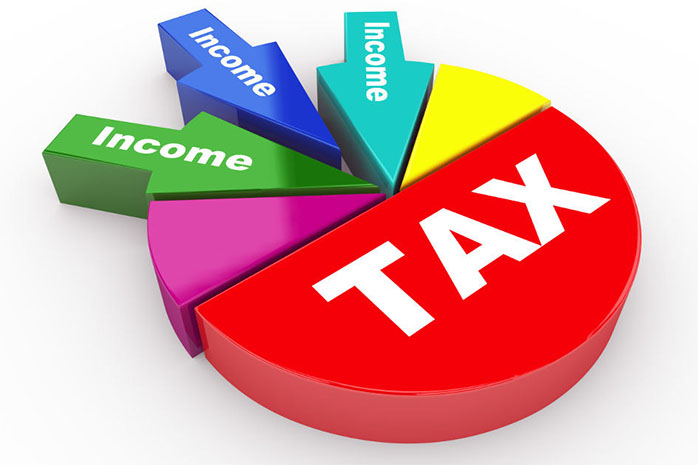By Siaka Momoh
Copyright independent

‘Experiences in the international environment shows that tax stamps often hinder local industry, erode gains in tax simplification, and yield a limited revenue impact. We therefore implore the Government not to succumb to the proposal to introduce Tax Stamps, instead Government should strengthen existing digital fiscal tools and border controls to achieve compliance without imposing undue burdens on industry.’
The Manufacturers Association of Nigeria (MAN) is not comfortable with the Federal Government’s planned introduction of a Tax Stamp System for excisable goods because it considers it not beneficial to manufacturing.
MAN understands that this consideration is predicated on the supposed benefits of curbing smuggling and counterfeiting, enhancing transparency and traceability in the excise regime, and supporting revenue growth.
But argues: “As we stated in 2018 when the Tax Stamp was initially suggested to Government and was roundly rejected, this fleeting proposition is typically the refrain of vendors who propose tax stamps as a measure against illicit trade While the efficacy of this measure is yet to be validated, findings indicate that tax stamps portend significant adverse implications without tangible benefits.
“However, as a critical stakeholder, MAN notes with concern that the proposed Tax Stamp System warrants careful reflection and caution. We firmly believe that while the intention is understandable, evidence around the world shows that the Tax Stamp System often imposes heavy compliance costs, creates operational bottlenecks, and yields limited incremental revenue.”
MAN highlights some of the concerns as follow:
I. Contradiction with the Nigeria Tax Act 2025: The Tax Act 2025 consolidated and rationalized taxes, providing businesses, especially SMIs, with relief from multiple levies. The introduction of a tax stamp system risks clawing back these gains, effectively imposing a new “hidden tax” on industries under the guise of compliance. Such a measure is tantamount to “giving with one hand and taking back with the other,” undermining the relief granted under the 2025 Tax Act. SMIs, in particular, would bear disproportionate burdens, weakening the Federal Government’s drive to promote local manufacturing and job creation.
II. Risk of upsurge in illicit trade: Ultimately, the high logistical costs and risks associated with tax stamps primarily benefit the vendor, not the government or the industry. There is a tendency that the Nigerian market risks an upsurge in illicit trade, which will erode government revenue, harm legitimate businesses, and jeopardize consumer safety.
III. Increased Costs Passed to Consumers: Producers and importers may raise prices to recover compliance costs, further straining consumers and potentially driving them toward cheaper, illicit alternatives.
IV. Existing digital systems: The government has already invested in home-grown digital systems that can deliver full visibility of excise operations. The Nigeria Customs Service had launched the B’Odogwu Automated Excise Register System (ERS), digitizing excise tracking and providing real-time visibility. The Federal Inland Revenue Service (FIRS) has also implemented e-invoicing, which captures production and sales data. These tools already give Government the visibility that tax stamps claim to provide without adding redundant layers.
V. Risk to industry competitiveness: It is pertinent to note that Nigerian manufacturers compete with imported brands within AfCFTA and beyond. Introducing additional costs in the form of tax stamp will increase production costs and render locally made products less competitive in regional markets.
VI. Increased production costs and reduced consumer demand: The implementation of a tax stamp system will inevitably raise production costs and discourage local patronage. At a time when households are already grappling with high inflationary pressures, the introduction of tax stamps would push consumers toward cheaper imported alternatives, fuel illicit trade, and risk driving local manufacturers out of the market.
VII. Lost revenue and higher costs: International studies show that while stamp systems can increase reported excise revenue, the compliance costs (borne by manufacturers) often exceed the marginal revenue gains. In particular, a 2020 academic study from the University of Cape Coast found that compliance costs significantly affect small taxpayers’ profitability and tax compliance in Ghana
VIII. Increased circulation of counterfeit goods: Paper-based tax stamps, in particular, are prone to falsification, making it extremely difficult for consumers and retailers to distinguish between genuine and counterfeit products. In the same vein, our experience in other markets equally shows that digital stamps are counterproductive, cutting productivity by up to 40%, and have not reduced illicit trade. So, in all cases, rather than strengthening enforcement, tax stamps have not abated the circulation of counterfeit goods, they undermine both government revenue and the profitability of legitimate industry players”.
IX. Costly implementation: Beyond effectiveness concerns, it is a case that the implementation of tax stamps comes with significant economic and operational burdens.
X. Employment Risks: Added costs could force producers and distributors to cut jobs across the value chain.
XI. Investment Deterrence: Higher operating costs would limit reinvestment, stifle innovation, and discourage new market entrants.
It also lists the following experiences in other countries across the globe:
I. Kenya (2013–present): Implemented the Excisable Goods Management System (EGMS) with physical/digital stamps for alcohol and tobacco, and later expanded to bottled water, juices, cosmetics, and other excisable goods in 2019. While it raised some excise revenue, it triggered multiple legal disputes, high compliance costs, and public resistance. Many factories argued that the system nearly priced them out of the market. Illicit trade persists despite the scheme. The Food & Beverages Association of Ghana (FABAG) has publicly asked the Ghana Revenue Authority (GRA) to absorb the costs associated with digital tax stamp machines rather than manufacturers bearing them.
II. Tanzania: Adopted digital tax stamps (2019) covering alcohol, tobacco, and soft drinks. An initial revenue uptick was reported, but recurring costs (stamp fees, machine installation) and operational delays later surfaced. Several small firms reportedly exited the market.
III. Uganda: Introduced tax stamps in 2019. A 2024 study by the Private Sector Foundation Uganda (PSFU), in collaboration with PwC and supported by the Uganda Manufacturers Association (UMA), examined the impact of Digital Tax Stamps on manufacturers. The study confirmed:
• High compliance costs (stamp fees, equipment installation, delays)
• Operational strain on small and medium enterprises (SMEs)
• Reduced competitiveness compared to neighbouring countries
iv. Ghana (2018): Rolled out excise tax stamps for alcohol, cigarettes, bottled water. Manufacturers cited significant cost burdens (up to 5–7% of product cost), with limited impact on illicit trade because smuggling routes remained porous. The Ghana Revenue Authority (GRA) acknowledges ongoing challenges with goods in transit being diverted back into the domestic market.
• Saudi Arabia & Gulf States: Adopted tax stamps on tobacco under the Gulf Cooperation Council (GCC) framework. While compliance is higher (due to stronger customs enforcement), costs are offset by state support and modern border infrastructure — conditions not yet present in Nigeria.
• United Kingdom: the UK recently reformed its tax stamp regime, recognizing it as outdated, costly, ineffective, and confusing for businesses. The reform highlights how legacy stamp-based systems can become bureaucratic burdens that stifle efficiency and investment, offering a clear warning to countries like Nigeria considering a similar excise stamp framework.
Tax stamps are only effective in limited contexts with a very strong enforcement capacity and government subsidies. In most emerging markets, they increase costs, shrink formal markets, and encourage illicit substitutes.
In view of the above, MAN is recommending the following:
I. Unequivocally reiterates its members’ commitment to excise contributions, while firmly maintaining its position on deliberate private–public sector efforts to co-create a conducive operating environment for industries to thrive.
II. Is worried that a tax stamp policy is coming at a time when industrial operators are already grappling with rising excise rates, high energy prices, inadequate energy supply, and high inflation, making the additional burden of implementing tax stamps a serious threat to industrial sustainability.
III. Call on the government to be wary of and reject any persuasion to rollout or implement Excise Tax Stamps, in whatever guise or form it may take, until a comprehensive stakeholder engagement process is undertaken and an inclusive impact assessment study is carried out.
IV. Rely on existing digital systems (ERS and E-invoicing) which already provide end-to-end tracking and transparency, avoiding duplication and unnecessary vendor-driven solutions.
V. Protect the gains of the 2025 Tax Reform Acts by avoiding measures that reintroduce complexity and costs, particularly for SMIs.
VI. Seeks a transparent framework for policy design and implementation that balances the government’s revenue goals with the need for a fair and conducive business environment.
Urge the government to adopt smarter and more cost-effective alternatives that strengthen tax compliance enforcement rather than imposing blanket excise tax stamps that will unduly burden manufacturers. Targeted border enforcement will help curb leakages and smuggling, digital traceability pilots can provide transparent and real-time monitoring of products, while risk-based audits will ensure that compliance efforts are focused where risks are highest.
In summary, MAN strongly urges the Federal Government to exercise caution in introducing a Tax Stamp System in Nigeria. MAN argues, “Experiences in the international environment shows that tax stamps often hinder local industry, erode gains in tax simplification, and yield a limited revenue impact. We therefore implore the Government not to succumb to the proposal to introduce Tax Stamps, instead Government should strengthen existing digital fiscal tools and border controls to achieve compliance without imposing undue burdens on industry.



